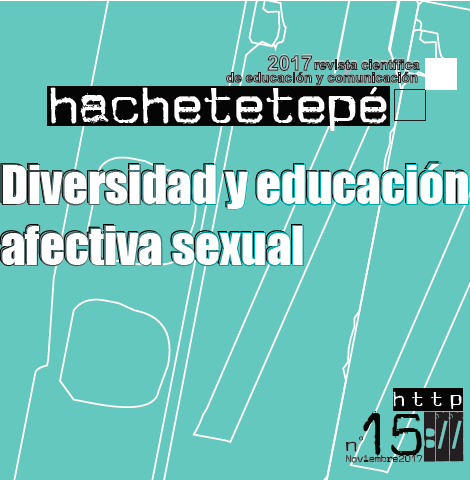“Mom, you don’t know”. The keeping of the digital divide on the basis of gender
Abstract
This article deals with socio-educational issues in relation to technologies and gender, a binomial still pending. The casuistry and the differences depending on the regions of the world, invite us to reflect and continue working for what is done to a right: education without distinction of gender and the impetus to the challenges that overcome inequality.The social reality in which many girls are immersed is far from desired and expected in 21st century society because of stereotypes and beliefs still present in groups and at different economic, social, labor and technological levels. Among others, the contributions of different authors and analyzes of relevant studies worldwide, along with the interpretation of quantitative data, showing a reality in which there is a digital image based on gender. We will do a quick review of these data.O n the other hand, we work in this article the use of technologies in the function of training and gender and how technological competence makes it possible or difficult the immersion in the professional world. All these evidences are shown in this work that invite to think of other solutions at formative level, to be able to suppress differences and gaps.
Keywords
Downloads
How to Cite
License

This work is licensed under a Creative Commons Attribution-NonCommercial-NoDerivatives 4.0 International License.
Those authors who have published with this journal, accept the following terms:
- They will retain their copyright and guarantee the journal the right to first publication of their work, which will simultaneously be subject to the Creative Commons Attribution License . They may be copied, used, disseminated, transmitted and publicly displayed, provided that the authorship, url, and magazine are cited, and are not used for commercial purposes. No derivative works are allowed.
- They may adopt other non-exclusive license agreements for the distribution of the published version of the work (e.g., deposit it in an institutional telematic archive or publish it in a monographic volume) provided that the initial publication in this journal is indicated.
- Disseminate your work through the Internet (e.g., in institutional telematic archives or on your website) once the manuscript is accepted, which may lead to interesting exchanges and increased citations of the published work. (See The effect of open access).
Hachetetepé. Scientific journal of education and communication does not charge a fee for the submission of manuscripts or for the publication of its articles.
References
Castaño Collado, C., Nuevas tecnologías y género. La segunda brecha digital y las mujeres. Disponible en (http://cort.as/yAdc)
Castaño Collado, C. (2008). La segunda brecha digital. Madrid: Cátedra (http://cort.as/yAcu)
Castells, M. (s.f.). Internet y la sociedad en red. Lección inaugural del programa de doctorado sobre la sociedad de la información y el conocimiento. UOC (http://cort.as/yE3A)
Connecting Women Leaders in Technology. ISACA (http://cort.as/yAda)
Crecimiento Inteligente (16/05/2012). Comisión Europea, Europa 2010 (http://cort.as/yJ5T)
EIGE European Institute for Gender Equality. Gender Statistics Database. Gender Equality Index. Scores of the Gender Equality Index and its domains and subdomains 2012 (http://cort.as/yJ2q)
González Ramos, A. M., Vergés Bosch, N., Martínez García, J. S. (2017). Las mujeres en el mercado de trabajo de las tecnologías. Reis jul. sep, 159; 73-90. doi:10.5477/cis/reis.159.73
INE Graduados en ciencias, matemáticas y tecnología por periodo. España y la UE-28 en Estadísticas de Educación y Formación Eurostat. Tanto por ciento respecto al total de graduados en cada sexo. (http://cort.as/yIc1)
INE Publicaciones. Mujeres y Hombres en España Ciencia y Tecnología/ Sociedad de la Información (actualizado 14 de diciembre de 2016. Brecha Digital de género (http://cort.as/yAdK)
National Center for Women & Information Technology. By the Numbers (http://cort.as/yAdF)
Red2 Red consultores S.L. (2008). Mujeres y Nuevas Tecnologías de la información y de la comunicación. Nº 106 Estudios Madrid: Instituto de la Mujer.
Unesco 2016 Informe de seguimiento de la educación en el mundo. Resumen sobre género. Creación de futuros sostenibles para todos. Disponible en http://cort.as/yAdB
Datos de UNICEF: Seguimiento de la situación de los niños y las mujeres (http://cort.as/yAd-)
UIT: Comunicado de prensa. La UIT publica las cifras de 2016 de las TIC (http://cort.as/yAcy)
Van Welsum, D., y Montaigner, P. (2007). ICTs and Gender. OECD: Working Party on the Information Economy (http://cort.as/yJ-z)






